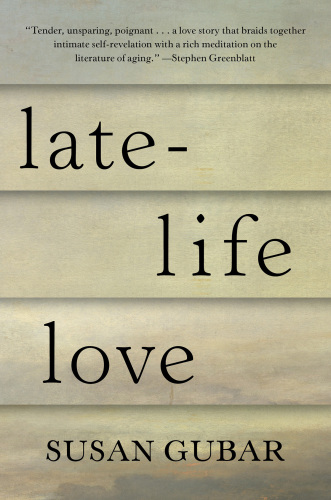
Late-Life Love
A Memoir
کتاب های مرتبط
- اطلاعات
- نقد و بررسی
- دیدگاه کاربران
نقد و بررسی

September 1, 2018
A deeply personal and bittersweet paean to love "immune to the vicissitude of time."Feminist scholar Gubar's (Emeritus, English/Indiana Univ.; Reading and Writing Cancer: How Words Heal, 2016, etc.) memoir could be read as the third in a trilogy of books she's recently written exploring her fight against cancer and the roles art and love play in the battle. Her husband, Don, 17 years older than she and suffering from injuries and age-related problems, figured in earlier books, but he's front and center here. Complicating their time together was the difficult decision to leave their large house, Inverness, for an apartment. She borrows a term from Joyce Carol Oates, "bibliomemoir," to describe her quest to find "honest portraits" from fiction, poems, plays, and films that deal with the "tensions, tussles, and triumphs of my own later-life love affair." Gubar "integrate[s] literary interpretation with personal reflection" to fashion a "resounding retort to overwhelmingly negative valuations of aging." She sets off "searching for trail markings on an uncleared path" with Jenny Diski's "comedy of bad manners," Happily Ever After, and then discovers Helen Simonson's "sparkling" novel about loss, Major Pettigrew's Last Stand, which drew her into a "world unlike my own." Gubar also discusses Samuel Beckett's "unexpectedly funny" play Happy Days, a "geriatric farce intriguing in its portrayal of a later-life love affair like no other." Gabriel García Márquez's "sprawling" Love in the Time of Cholera hits the "grand slam of late-life love tradition" with its portrait of love as "both a sickness and an anodyne." Offering particular support were poet and translator Jane Kenyon, Donald Hall's poems about his ill wife, and Marilynne Robinson's Gilead and Lila, which cost Gubar "half a box of tissues."In a book filled with wit, candor, and poignancy, the author concludes, "late-life love may heat at a lower temperature, but it bubbles and rises."
COPYRIGHT(2018) Kirkus Reviews, ALL RIGHTS RESERVED.

Starred review from September 10, 2018
New York Times columnist Gubar (Reading and Writing Cancer) references literary works to present a probing discussion of aging in this bittersweet memoir. At 70 and in remission from ovarian cancer, Gubar and her 87-year-old husband, Don Gray (both retired English professors at Indiana University), grappled with the prospect of moving from their home of 21 years to a more manageable condo. Gray was recovering from a torn tendon caused by a fall as Gubar set out to gather and ponder literary works addressing late-life love. Her intriguing text moves organically between two overriding topics: the first being domestic and concerning practical issues that arise as the devoted couple faces health issues (a nicked bowel during ovarian cancer surgery left Gubar with an ostomy bag), as well as concerns about their four adult children, grandchildren, and aging friends. The second is how “autumnal romance” is portrayed in works by Samuel Beckett, Marilynn Robinson, Gabriel Garcia Marquez, and others. Though Gubar presents a sampling of thorny examples (for instance, Updike’s “late-life lechery” in his third “Rabbit” novel), she also unearths many that offer views of aging love as deep and inspiring. Gubar’s wise, honest, and frequently humorous work (“the Latin word for old woman is anus,” she notes) reveals that even amid the inevitable struggles of old age, personal and conjugal reinvention is not only quite possible, but also quite possibly lovely—both in literature, and in life.

October 1, 2018
She was a divorc�e, he a widower, yet these two lifelong friends and colleagues took a chance on committing to love in their senior years as husband and wife. Antique lovers is how Gubar (Memoir of a Debulked Woman, 2012) describes herself and her husband, Don, stressing both respect for the instituiton of marriage and the affection and passion many would find surprising, given their ages. How to put their relationship in context? It's easy to conjure a roadmap for the ardor of young love, but where are the touchstones for late-life love? As she and Don confront the vagaries of aging?health problems, reduced mobility, transitioning to a home that requires less upkeep?Gubar combs novels and poems, movies and plays to gain insight into the type of loving reflective of the bond she and Don enjoy. Author of the popular and insightful monthly New York Times column, Living with Cancer, and a respected feminist scholar, Gubar confronts life's most personal circumstances and her innermost fears and triumphs with wit, joy, sensitivity, and abundant honesty.(Reprinted with permission of Booklist, copyright 2018, American Library Association.)

























دیدگاه کاربران